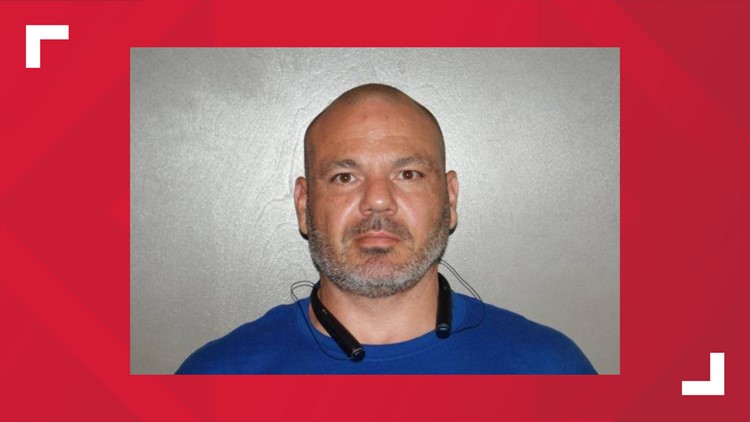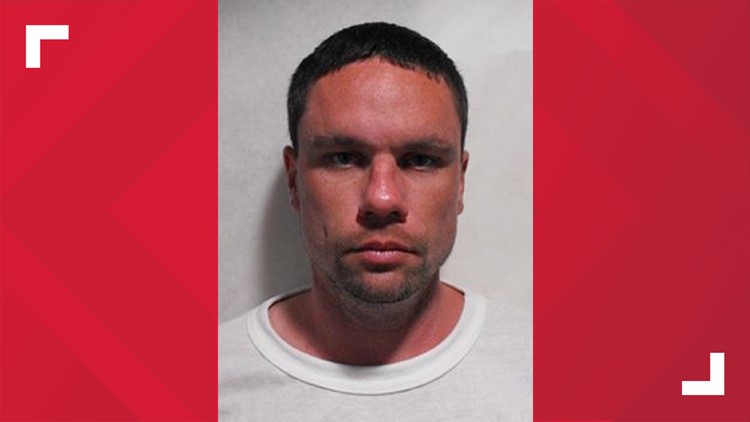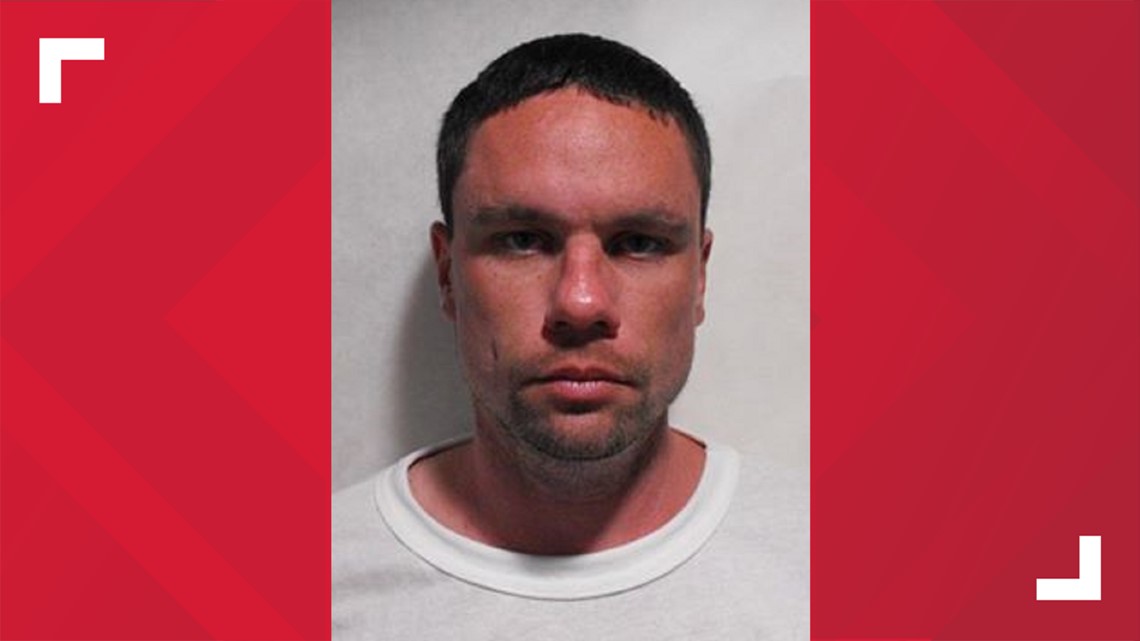VALDOSTA — In 2016, Halloween was scary for all the wrong reasons.
Lowndes County sheriff’s deputies fanned out to check on residents on the state’s sex offender registry. The results: 344 in-person verifications, four warrants issued for non-compliant registrants (not living at their registered address) and one warrant issued for sexual exploitation of children (possession of child pornography), according to the sheriff’s office.
There were four arrests for violation of probation (participation in Halloween activities, which is forbidden to sex offenders under state law) and three warrants issued for violation of probation (were not home during Halloween activities), according to the sheriff’s office.
Georgia’s sex offender registry was created in 2006. This week, the newspapers in the SunLight Project areas of Valdosta, Thomasville, Tifton, Moultrie, Milledgeville and Dalton take a look at how law-enforcement agencies use the registry and deal with those registered.
WHAT IS THE REGISTRY?
The Georgia Bureau of Investigation maintains the state’s sex offender registry. Sheriff’s offices in each county are required to maintain a list of convicted sexual offenders and forward that information, including their addresses, to the GBI.
In Lowndes County, those duties fall to Amanda Giddens and Rodney Smith, investigators with the Lowndes County Sheriff’s Office.
Smith’s job is mostly field work: “I go out and check addresses, make sure they’re still there, every 30-45 days.”
Giddens mainly handles office duties.
“I handle the administrative side — paperwork, entry into the GBI system, handling prosecutions. I’m also a member of the GBI Internet Crimes Against Children Task Force, handling prosecutions for those,” she said.
As of Nov. 28, In Lowndes County, there were 291 registered sex offenders: 32 incarcerated, one homeless, five absconded and wanted, and 26 who do not live in Lowndes but work or attend school in the county, Giddens said.
Lt. Tim Watkins, Thomas County Sheriff’s Office chief investigator, said Thomas County seems to have more reports of sex crimes than other places.
As of Nov. 25, Thomas County had 160 registered sex offenders. Ten people on the Thomas County sex offender registry were arrested in the last year for violating terms of the registry. Follow-ups were done on several more individuals on the list, but arrests were not made.
“The challenges facing sheriff’s offices around the state is that sex offender registration is an unfunded mandate on their agencies,” Watkins said.
He said his Criminal Investigations Division spends three man-hours a day on sex offenders. They also verify sex offenders’ addresses and employment several times a year.
WHO’S ON THE LIST?
In Lowndes County, the sex offender registry is almost a men’s-only club. Of the 313 registered offenders in Lowndes on the GBI’s most recent database, only six are women.
Smith said the most numerous crimes on the registry involve some sort of sexual battery. Exclusive of crimes against children, the GBI database lists 30 cases of rape and 34 cases of various violent sex-related crimes among Lowndes County’s registered offenders.
Giddens said among new offenders, the majority involve crimes against children. The state registry lists 97 cases of child molestation and 53 statutory rape cases in Lowndes County.
The difference between child molestation and statutory rape is one of age. Statutory rape is often “boyfriend-girlfriend, one older than the other,” Smith said. Statutory rape is often a plea deal argued down from child molestation, where the age difference is greater, he said.
The only statutory rape cases listed on the registry are felony convictions. Misdemeanor statutory rape is not a registry offense. To qualify as a misdemeanor, the offender must be younger than 18, with not more than a four-year age difference, Giddens said.
Lowndes County has 14 registered offenders officially marked as “predators.”
WORKING WITH THE REGISTRY
“I get daily calls from the public,” Giddens said. “I can tell if an offender lives on a street, but, by name, can only say ‘Yes, an offender lives at that address.'”
For more information, such as “how old was the child,” people have to file an open records request, she said.
Most arrests of people already on the registry list are for moving without notifying the sheriff’s office, Smith said.
About five to 10 people a year are removed from the list, he said. Giddens said there is a procedure for petitioning the court for removal. It includes such requirements as: Must have finished any prison time at least a decade earlier, must have been classified by review board as low risk, no intentional physical harm involved in the original crime, no kidnappings and no crossing state lines.
The Valdosta Police Department primarily uses the registry as an investigative tool, Police Chief Leslie Manahan said.
“If we were searching for someone in a violent crime, it gives us an ability to locate people in our area, especially in stranger-to-stranger cases,” she said.
The chief cited a case from several years ago when a woman was assaulted downtown. The sex offender registry was one of several avenues toward identifying the woman’s attacker, she said.
The police are not involved in maintaining the registry, Manahan said.
The Lowndes County Sheriff’s Office “does an excellent job at that,” she said.
“For us, it’s a tool but the sheriff’s office actually gets to know the offenders,” Valdosta Police Lt. Scottie Johns said.
Statewide, the Department of Community Supervision is actively supervising 7,536 sex offenders and 224 sexually dangerous predators — those deemed by a review board as the worst offenders. After a Supreme Court ruling, 412 sexually dangerous predators were removed from GPS monitoring. The court ruled that tracking offenders with GPS devices after they had completed their sentences was unconstitutional.
In Colquitt County, though the sheriff’s office handles current registered sex offenders, the Moultrie Police Department handles sex offender cases just like any other case.
“It’s a top priority, of course,” Moultrie Police 1st Sgt. Justin Lindsay said.
WHERE DO THEY LIVE?
A map of Lowndes County’s sex offender registrants shows the greatest concentration is within the city limits of Valdosta.
“It could be because of family support; it could be because many motels fall in the perfect area outside of forbidden zones for sex offenders,” Manahan said. “They are required to have stable residency.”
A series of Georgia legal code amendments have created a four-tiered system to determine where convicted sex offenders can and cannot live, depending on the date of their conviction:
• For those convicted before June 4, 2003, there are no restrictions.
• For those convicted between June 4, 2003, and June 30, 2006: The offender may not live within 1,000 feet of any child-care facility, school or area where minors congregate.
• For those convicted between June 30, 2006 and July 1, 2008: A 1,000-foot buffer around churches, community swimming pools and day-care centers was added. Additionally, someone on the registry may not work at a business within 1,000 feet of those locations.
• For those convicted after July 1, 2008: A 1,000-foot buffer was added around public libraries, skating rinks and gymnasiums.
Smith said if a church or school were built close to where a sex offender was already living, the offender would get to stay.
HELP FOR THE VICTIMS
Many communities have organizations to help victims of sexual crimes.
In Thomas County, the Treehouse, a victims’ advocacy agency, does a tremendous job of making victims feel comfortable and in reporting and investigating the process necessary in the crimes, Lt. Watkins said.
“I believe the partnership with the district attorney’s office, The Treehouse and law enforcement has worked well in obtaining convictions of the offenders,” he said.
In Moultrie, the Hero House Child Advocacy Center has an average of two to three interviews a week. Regina Dismuke, Hero House director, recently did two in one day on Dec. 3. The monthly average she’s seen from Colquitt County and Moultrie together was 10 to 15 in a month, but some months have seen 22 interviews. Larger cases of sexual abuse can have four or five interviews.
“To be a successful forensic interviewer, you have to have a certain set of skills because when you’re talking to children your emotions cannot show on your face. You cannot show the disbelief of maybe what they’re saying,” Dismuke said.
In addition to Terry Richards, SunLight members Riley Bunch, Bryce Ethridge and Patti Dozier contributed to this report.
SEX OFFENDERS REGISTERED IN LOWNDES COUNTY BY CRIME:
Child molestation: 97
Statutory rape: 53
Enticing a child: 8
Child pornography: 1
Rape: 30
Sodomy: 1
Sexual battery on a child under 16: 7
Source: Georgia Bureau of Investigation Sex Offender Registry
Terry Richards is senior reporter at The Valdosta Daily Times.























